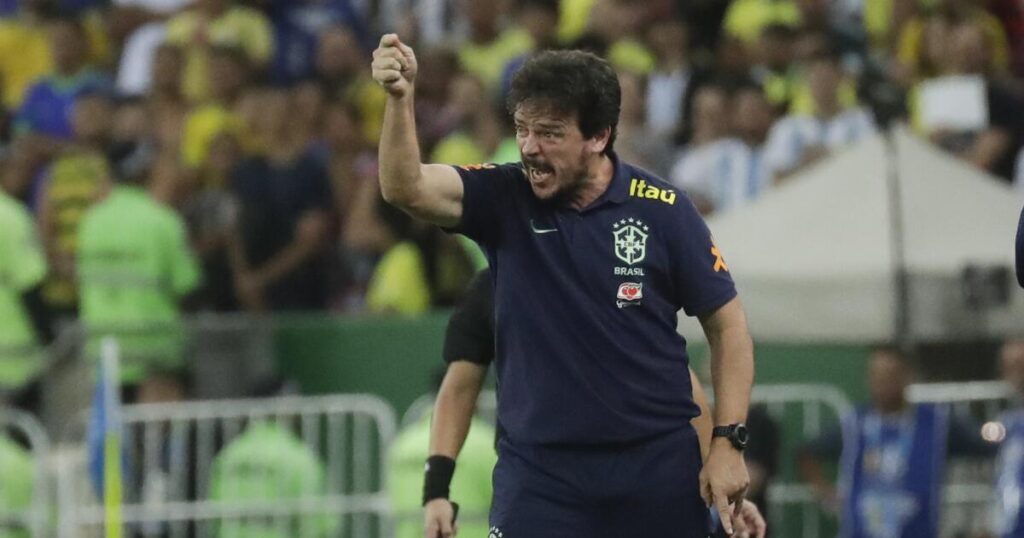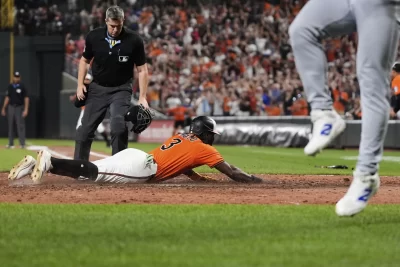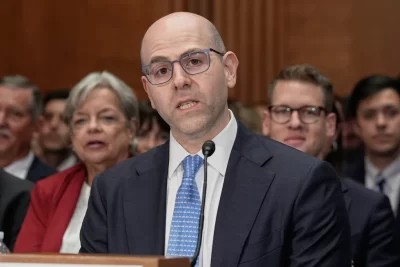
Until this year, Brazil’s national soccer team had never lost three games in a row. The Selecao had never lost a World Cup qualifying match at home. It had never had anything but wins against a visiting Venezuela team, for many years the weakest in South America.
Interim coach Fernando Diniz, however, has had to endure all those setbacks in only a few months on the job — all while Brazil hopes that Real Madrid coach Carlo Ancelotti will soon take over.
Diniz’s troubles, and the lack of a confirmed answer from Ancelotti, have increased the pressure on the Brazilian team, even though qualifying for the expanded 2026 World Cup is still expected despite a 1-0 loss to Argentina on Tuesday.
The top six teams in the South American qualifying group will gain direct entry to the 48-team tournament in the United States, Mexico and Canada. The seventh-place team can earn a berth in an intercontinental playoff.
Brazil, the only team never to miss a World Cup, has won only three of nine matches in 2023 — the national team’s poorest record in years. The five-time World Cup champions are in sixth place in the 10-team South American qualifying group with seven points after six matches — eight behind leader Argentina. Performances have been equally disappointing.
The 49-year-old Diniz, who took over in July, has split his time with the national team and Brazilian club Fluminense. That alone has drawn the ire of some of his club’s fans and those of the national team. His attacking style of play is admired by many, even more so after his team’s Copa Libertadores title this year.
The interim coach is not a fan of positional play, unlike predecessor Tite, who left after six years following last year’s World Cup elimination against Croatia. Diniz doesn’t believe in spreading his players on the field. Instead, he concentrates them wherever the ball is so he can outnumber the opposition where it matters.
The problem for Brazil is that formula takes time to succeed, as it did with Fluminense. If opposing teams move the ball fast enough, they will find an unmarked man at some point, something that has happened to Brazil in several World Cup qualifying matches.
Few Brazil players coming from European leagues have understood what the coach wants from them.
“We have a different style. It is different from what we had with Tite,” Brazil defender Emerson Royal said Wednesday. “It is not easy to play like that. Few teams in the world can do that. What Diniz is trying to do with Brazil is a very hard thing to do.”
Royal, one of the players who got the most jeers at the Maracana Stadium on Tuesday before the loss to Argentina, is another part of the team’s problems this year. The right back is among the players struggling to do well for both his club and the national team, but still starting matches for Brazil because of a lack of options and injuries.
That is also the case for defenders Marquinhos and Gabriel Magalhães, left back Renan Lodi, midfielder Bruno Guimaraes and striker Raphinha. To make it worse, Brazil has lost some of its best to injury, including starters like Neymar, Casemiro and Vinicius Júnior.
“If I were there I think I would have made some mess with them,” Neymar said on social media about the match against Argentina.
The next South American qualifying matches will take place in September, after the Copa America in the United States. That long gap will allow the team to recover some of its players and give more room to promising strikers like center forward Vitor Roque, currently injured and signed by Barcelona, and teenage sensation Endrick, who will join Real Madrid next year.
Critics will have to wait until the first friendlies of 2024 to see if any lessons have been learned. Brazil will play in Europe against England and Spain in preparation for Copa America.
Until then, Brazil’s coach will have to deal with upset fans.
“Our fans chanting ‘Ole’ for Argentina when they passed the ball was a little too much,” Diniz said after Brazil’s loss. “Getting bitter about the team because it is not winning is extremely understandable. We need to live with the jeers and the pressure.”






